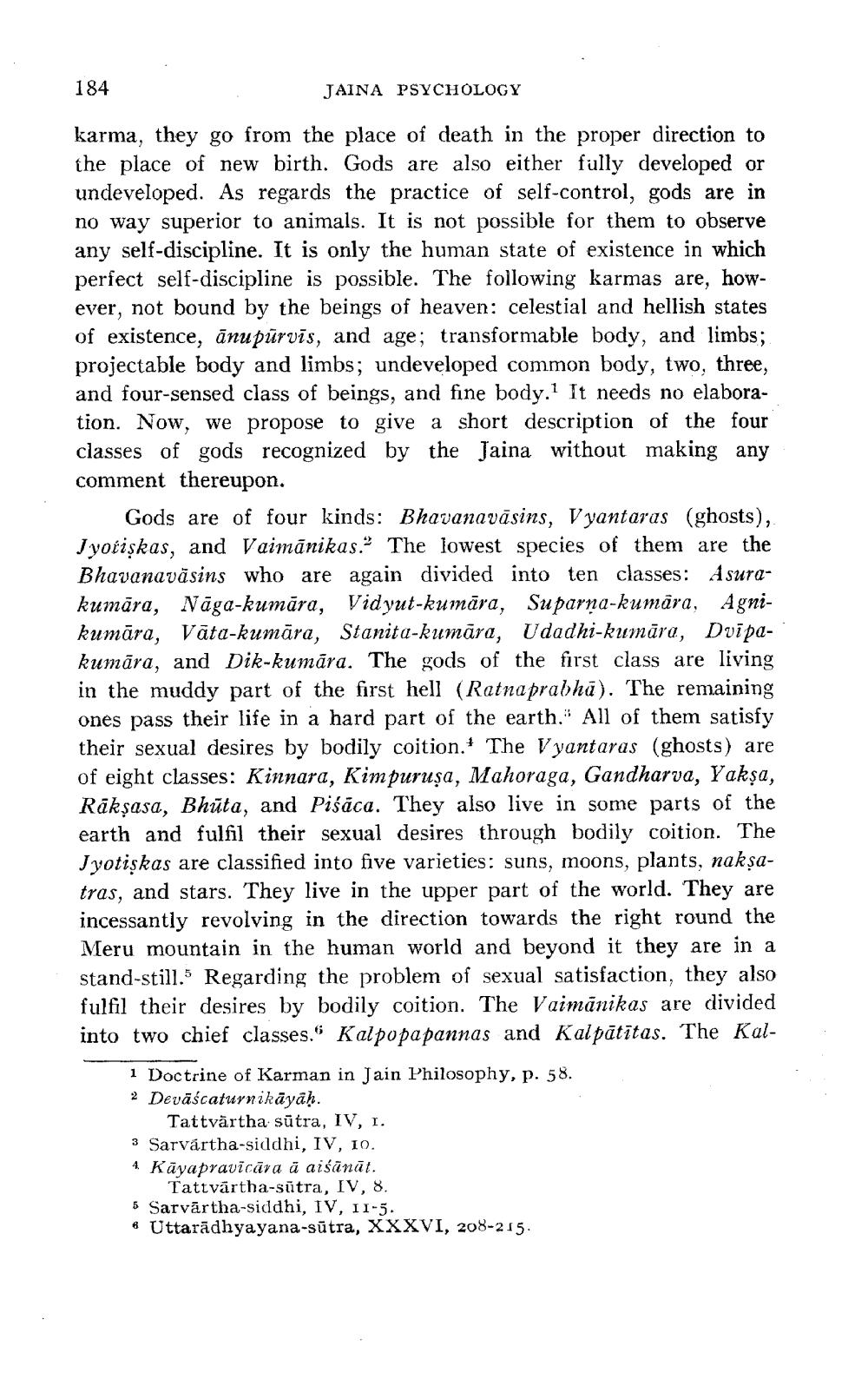________________
184
JAINA PSYCHOLOGY
karma, they go from the place of death in the proper direction to the place of new birth. Gods are also either fully developed or undeveloped. As regards the practice of self-control, gods are in no way superior to animals. It is not possible for them to observe any self-discipline. It is only the human state of existence in which perfect self-discipline is possible. The following karmas are, however, not bound by the beings of heaven: celestial and hellish states of existence, anupūrvīs, and age; transformable body, and limbs; projectable body and limbs; undeveloped common body, two, three, and four-sensed class of beings, and fine body. It needs no elaboration. Now, we propose to give a short description of the four classes of gods recognized by the Jaina without making any comment thereupon.
Gods are of four kinds: Bhavanavāsins, Vyantaras (ghosts), Jyotiskas, and Vaimānikas." The lowest species of them are the Bhavanavasins who are again divided into ten classes: Asurakumāra, Nāga-kumāra, Vidyut-kumāra, Suparna-kumara, Agnikumāra, Vāta-kumāra, Stanita-kumāra, Udadhi-kumāra, Dvipakumāra, and Dik-kumāra. The gods of the first class are living in the muddy part of the first hell (Ratnaprabha). The remaining ones pass their life in a hard part of the earth." All of them satisfy their sexual desires by bodily coition. The Vyantaras (ghosts) are of eight classes: Kinnara, Kimpuruşa, Mahoraga, Gandharva, Yakṣa, Raksasa, Bhuta, and Piśāca. They also live in some parts of the earth and fulfil their sexual desires through bodily coition. The Jyotiskas are classified into five varieties: suns, moons, plants, nakṣatras, and stars. They live in the upper part of the world. They are incessantly revolving in the direction towards the right round the Meru mountain in the human world and beyond it they are in a stand-still. Regarding the problem of sexual satisfaction, they also fulfil their desires by bodily coition. The Vaimānikas are divided into two chief classes." Kalpopapannas and Kalpatītas. The Kal
1 Doctrine of Karman in Jain Philosophy, p. 58.
2 Devāścaturnikāyāḥ.
Tattvärtha sutra, IV, 1.
3 Sarvartha-siddhi, IV, 10.
4 Kayapravicāra ā aiśānāt. Tattvärtha-sūtra, IV, 8.
5 Sarvartha-siddhi, IV, 11-5.
• Uttaradhyayana-sutra, XXXVI, 208-215.




